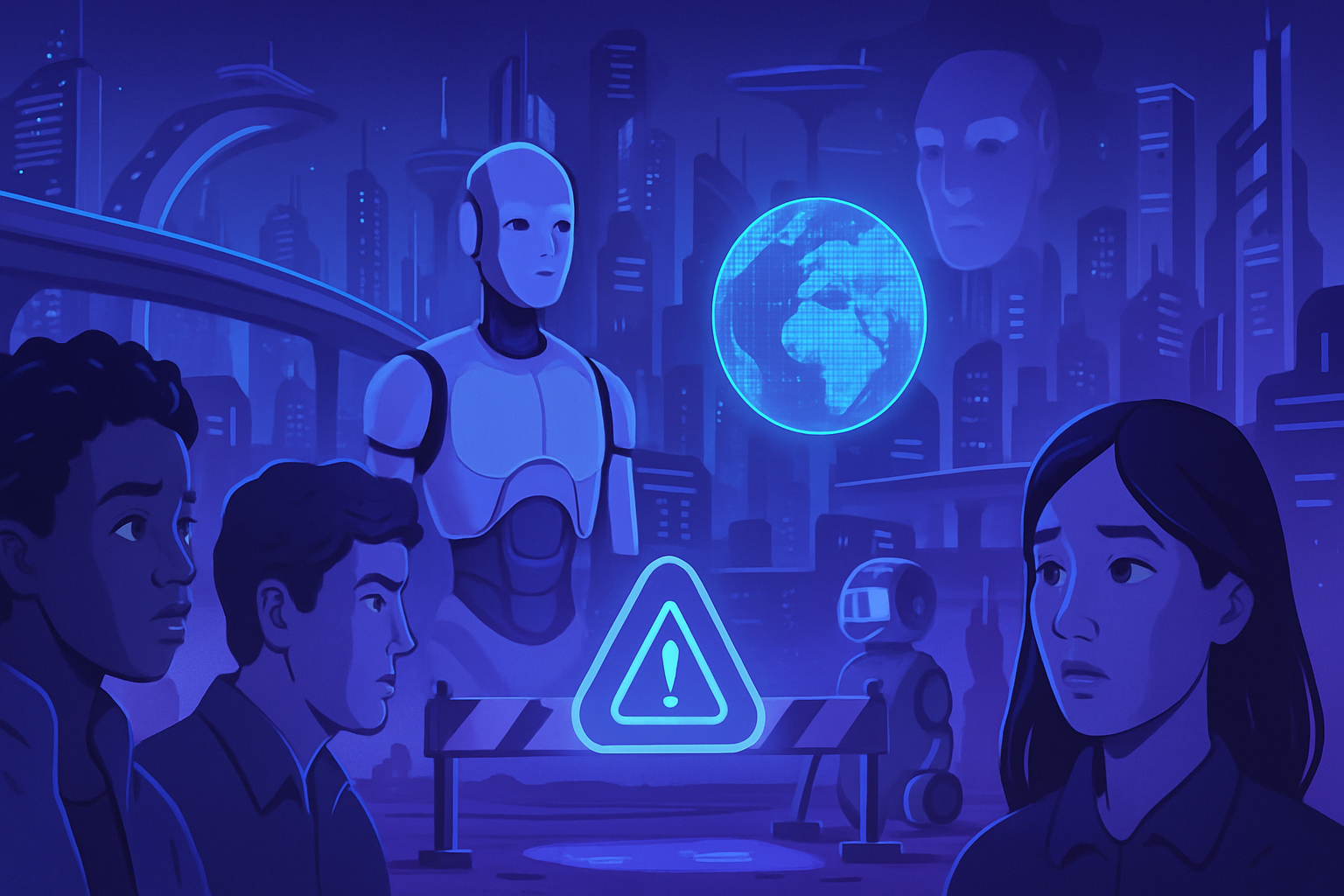An era of uncertainty is emerging, dictated by the rapid rise of artificial intelligence. This technology, deemed revolutionary, raises pressing questions about its societal and ethical implications. AI, indeed, acts as a distorting mirror of our humanity, revealing our flaws while promising a bright future. *Vigilance is essential in the face of growing automation.*
Delegating management to algorithms carries major risks, from algorithmic discrimination to the loss of socio-economic control. *Accepting AI unreservedly could lead to inextricable pitfalls.* The necessity of establishing limits becomes indisputable as we prepare to entrust this entity with increasingly greater responsibilities. A misunderstanding of the stakes and limitations of AI could plunge us into an abyssal misstep with insurmountable consequences.
Context and Landscape of Artificial Intelligence
The advent of artificial intelligence (AI) has brought about profound transformations in various sectors. Its influence extends from technological fields to creative domains, revealing unprecedented potential. However, a thorough reflection on its limits is now emerging, as entrusting more responsibilities to these systems could lead to disastrous outcomes.
The Inherent Pitfalls of AI
The failures in AI are numerous, and each deserves particular attention. The first concerns its inability to grasp the contextual nuances essential for decision-making. Algorithms may generate appropriate responses in predefined situations, but they often fail in scenarios requiring more subtle assessments.
Moreover, biases embedded in training data pose a major problem. AI trained on biased datasets replicates these injustices, exacerbating existing inequalities. This flawed logic raises major ethical concerns and highlights the necessity for a rigorous approach to the training of systems.
The Potential Abuses and Manipulation
AI devices are also vulnerable to manipulation. The possibility of third parties exploiting these systems for malicious purposes represents an increasing risk. Examples illustrate these abuses, such as the dissemination of misleading content or distorted targeted advertising. These techniques could undermine public trust in the information disseminated.
The Social and Economic Implications
The consequences of AI touch the very heart of our social structure. The replacement of traditional jobs by machines raises thorny questions, particularly regarding unemployment and professional retraining. Workers in the affected sectors fear for their future as the impact on the job market becomes clearer.
On this front, the wandering of the creative sector in the face of AI is debated. Creators, artists, and professionals fear that their expertise will be overshadowed by algorithms capable of generating works. According to some experts, as mentioned on actu.ai, the increasing pressure from such competition could harm the integrity of the creative process.
Calls for Regulation and Responsibility
In the face of these challenges, voices are rising to demand strict regulation of AI. A proactive approach that could mitigate risks seems to be necessary. Companies must assume social responsibility by integrating ethical principles in the development and deployment of their technologies.
The future of AI will depend on establishing adequate legislative frameworks. Governments, in coordination with the concerned industries, must work to ensure that AI devices do not become arbiters of our lives without appropriate oversight.
Open Conclusion on the Future of the World in the Face of AI
Experts, such as those in the article on actu.ai, offer innovative perspectives on balanced management of technological advances. The necessity for collective awareness is felt to navigate through this complex digital era. Only by recognizing the limits of AI can the promise of harmonious coexistence between humans and machines be realized.
Frequently Asked Questions about the Limits of AI
What are the main limitations of artificial intelligence (AI)?
The main limitations of AI include its inability to understand human emotions, a lack of creativity comparable to that of humans, and a dependence on training data that may be biased or incomplete.
Why is it urgent to recognize the limitations of AI?
Recognizing the limitations of AI is crucial to avoid biased decisions, ensure the safety of autonomous systems, and prevent the delegation of critical responsibilities to machines that may not act ethically or responsibly.
How can the limitations of AI affect decision-making in organizations?
The limitations of AI can lead to judgment errors, institutional biases reinforced by machine learning models, and the potential for inappropriate decisions in contexts where human discernment is needed.
What measures can be taken to limit the excessive use of AI?
It is essential to establish regulatory frameworks, encourage ethics in AI development, and promote a responsible approach to the adoption of AI in sensitive sectors.
How can biases in AI data compromise outcomes?
Biases in AI data can lead to unfair outcomes, discrimination against certain groups, and affect the reliability of predictions made by AI models, which can have serious consequences in areas like recruitment or justice.
In what way can AI not replace human judgment?
AI cannot understand the nuances of human interactions, inherits biases from the data it analyzes, and cannot exhibit empathy or contextual understanding, which is fundamental in many human decisions.
What are the risks of entrusting management responsibilities to AI?
Entrusting management to AI without adequate oversight can lead to critical errors, a loss of control over systems, and a lack of accountability, raising ethical concerns regarding the automation of important decision-making processes.
How can companies ensure they use AI responsibly?
Companies can establish ethics committees, train their personnel on AI issues, regularly assess their AI systems for biases, and commit to using transparent and representative data.






